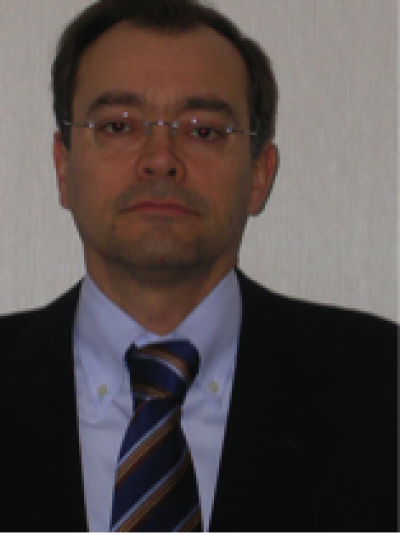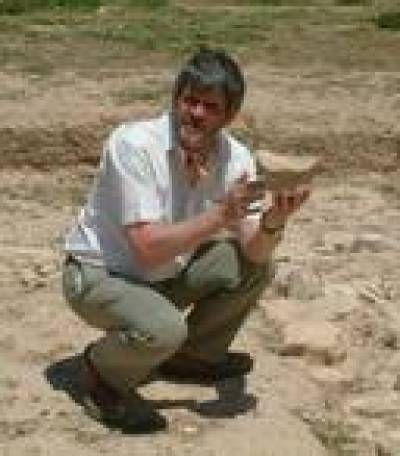IRDR Discussion Forum: Heritage and Disasters, Wednesday 9th March 2016
25 January 2016
Panel Discussion: 18:00 to 19:30, Cruciform Lecture Theatre 02, Cruciform Building, Gower Street, London, WC1E 6BT Drinks Reception: 19:30 to 21:00, Wilkins North Cloisters This event is free and open to members of the public, all UCL staff and students.
For a Post-Event report visit the this news article.
It has long been recognized that our cultural heritage is intertwined with our cultural identity and continuity, this includes ancient buildings and historic urban fabric, ancient manuscripts, valuable works of art and community ritual ceremonies. Natural and anthropogenic disasters including earthquakes, floods, terrorist attacks and conflicts not only claim lives and livelihoods, but also can impact significantly on our cultural heritage. Recent disasters including the L'Aquila earthquake in Italy in 2009, the 2015 Kathmandu earthquake in Nepal and ongoing conflicts in Syria highlight the escalating risks and vulnerabilities to our cultural heritage.
We have brought together an expert panel from academia and practice who will discuss:
- Why the protection of cultural heritage is important and how we can protect and enhance its resilience to disasters. What are the complexities in practice?
- How existing academic discourse and research on heritage and disaster risk reduction can play role in heritage resilience?
- How the public and private sectors can be mobilized to proactively reduce disaster risk to our cultural heritage and furthermore to enhance successful recovery or reconstruction when it is impacted?
The panel includes William Brown, National Security Adviser, Arts Council England; Sergio Olivero, Head of Energy and Security Research Area, SiTI, Italy; Kalliopi Fouseki, Senior Lecturer and course director for the MSc Sustainable Heritage at the UCL Institute for Sustainable Heritage (ISH); Jonathan N. Tubb, Keeper, Middle East, The British Museum; and Farnaz Arefian, Enterprise Manager, UCL's IRDR and Founder of 'Silk Cities' Platform. The discussion will be followed by a drinks reception, where there will be the opportunity to network and continue discussions on this topic. We encourage open debate between panelists and attendees.
Professor David Alexander has written a Think Piece on Cultural Heritage and Disasters as an introduction to the discussion.
Panel:
Panel Chair: Farnaz Arefian, Enterprise Manager, IRDR, founding director of 'Silk Cities'
Farnaz is an expert in disaster management and risk reduction (DRR), urban design and strategic management. She has a background in private sector consultancy for delivering largescale urban development and architectural projects, including in historic urban areas. She has a firsthand experience in post disaster reconstruction in the city of Bam, Iran, recognized as a world heritage site after the disastrous earthquake in 2003. Her PhD research dealt with organizational design and management for post disaster reconstruction programmes. Her current research interests concern disaster risk reduction; urban reconstruction; urban resilience; strategic management and organizational configuration for urban development programmes; and contextual urban challenges that historic cities alongside the Silk Roads (Silk Cities) face within the process of urban transformation as a result of their historic past.
William Brown, National Security Adviser, Arts Council England
William advises the Arts Council England to deliver the Government Indemnity Scheme on behalf of the Department of Culture Media and Sport in support of public access to loans and exhibitions. It is a pre-condition of UK Government Indemnity that the borrowing institution receives national security advice and approval for the exhibition venue. Prior to this he was a National Security Adviser to Museums Libraries and Archives Council. His experience includes being a Partnership Officer in Met. As Partnerships Officer William represented the force at all levels and led on projects to install Public Closed Circuit Television systems in Nottinhamshire towns and the National pilot of mobile CCTV in Newark and Sherwood District. He managed the Home Office Burglary Reduction initiative in Bassetlaw and was the project manager in the North Nottinghamshire Priority Policing area programme.
Kalliopi Fouseki, Senior Lecturer, UCL Institute for Sustainable Heritage (ISH)

Kalliopi is the course director for the MSc Sustainable Heritage at the UCL Institute for Sustainable Heritage. She holds a BA in Archaeology and Art History, a MA in Cultural Heritage Studies and a PhD in Heritage Management. She has worked in several museums including the New Acropolis Museum, the Archaeological Museum of Ancient Olympia in Greece and the Science Museum, London. Prior to UCL, she worked at the University of York, the Open University in Greece, UK and Cyprus. Her current research interests lie in participatory approaches to heritage management; heritage values; heritage and sustainable development; heritage and conflict and heritage and energy.
Sergio Olivero, Head of Energy

Sergio leads security and safety at SiTI, a research institute created by Turin Technical University and Compagnia di San Paolo, one of the main bank foundations in Italy. Prior to this he was working with private companies in Milan in the field of security and civil protection. His experience includes directing the quality department of the north western branch of the business division. His recent research issues include innovative business models for the renovation and refurbishment of city districts, smart grids and energy storage. Concerning Security, his main research fields are critical infrastructures (energy and water networks), security and risk assessment, and security of cultural heritage with respects to natural disasters and man-made threats (thefts, vandalism, terrorism).
Jonathan N. Tubb, Keeper, Middle East, The British Museum

Jonathan Tubb is Keeper (Head) of the Middle East Department of the British Museum, President of The Palestine Exploration Fund and a Fellow of the Society of Antiquaries. A specialist in the archaeology and history of the Levant, he studied at the Institute of Archaeology in London (now a part of University College), and began his field career in Syria and Iraq in the 1970's. In 1984 he excavated the Early Bronze Age site of Tiwal esh-Sharqi in the Jordan Valley on behalf of the British Museum, and between 1985 and 1996 conducted nine seasons of excavations at the nearby major site of Tell es-Sa'idiyeh. In 2013 he began a new excavation project at Ras al-Hadd in Oman. An expert on Canaanite civilization, he is the author of many articles and several books on Levantine archaeology, and lectures internationally. Jonathan is Director of the British Museum's Iraq Emergency Heritage Management Training Scheme.
IRDR Panel Discussion Public Events
Our discussion meetings take the format of a panel discussion and questions from the audience, lasting about 90 minutes in total. This meeting is open to UCL staff and students, members of the museums, art galleries, art and artefact commercial business, disaster risk reduction community, policing and security, engineering, urban planners and designers, and members of general public.
 Close
Close







